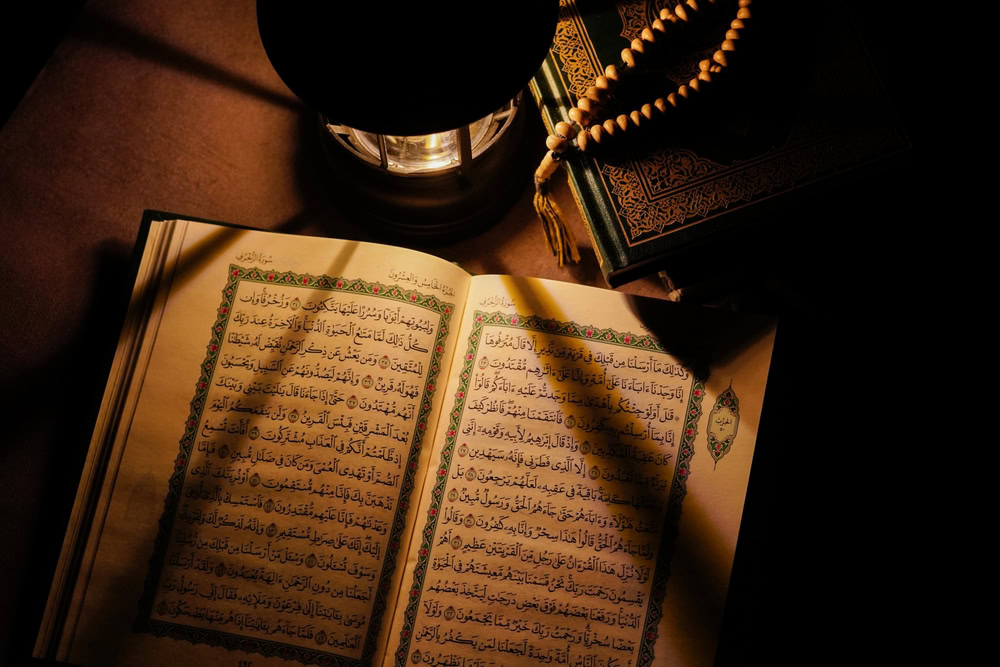Why Does Surat al-A’la Mention Only Ibrahim and Musa (Peace Be upon Them)?
Answered by Shaykh Irshaad Sedick
Question
Why does Surat al-A‘la mention only the scriptures of Ibrahim and Musa instead of other prophets who also received scriptures, like ‘Isa?
Answer
In the Name of Allah, the All-Merciful, the Especially Merciful.
Allah (Most High) says in Surat al-A‘la:
“Indeed, this is in the former scriptures— The scriptures of Abraham and Moses.” [Quran, 87:18-19]
This verse specifically mentions the scriptures of Ibrahim (peace be upon him) and Musa (peace be upon him) without reference to other prophets who also received scriptures, such as ‘Isa (peace be upon him) and Dawud (peace be upon him). This selective mention is not unusual in the Quran. For instance, in another passage, Allah (Most High) refers only to Dawud (peace be upon him) in connection with the Psalms:
“And We gave to Dawud the Zabur.” [Quran, 17:55]
Likewise, ‘Isa (peace be upon him) is uniquely mentioned alongside Musa (peace be upon him) regarding divine scriptures in another verse:
“Then We sent after them Our messengers, and We sent after them ‘Isa, the son of Mary, and We gave him the Gospel…” [Quran, 57:27]
Wisdom Behind Selective Mentions in the Quran
The Quran presents portions of narratives or specific pieces of information in different places for divine wisdom. Some of these include:
-
Encouraging Reflection and Inquiry:
The Quran invites believers to ponder and ask questions by not always providing complete details in a single passage. This approach stimulates curiosity and deeper understanding.
-
Emphasizing Different Aspects of Prophethood:
The mention of Ibrahim (peace be upon him) and Musa (peace be upon him) in Surah Al-A‘la serves a purpose within the sura’s themes. Both prophets were central figures in divine guidance before the final revelation, and their scriptures contained core principles reaffirmed in the Quran.
-
Contextual Relevance:
Each Quranic passage addresses a specific audience or context. Here, the mention of Ibrahim and Musa (peace be upon them) aligns with the sura’s message about the continuity of divine guidance and the call to purify oneself through revelation.
The Quran’s selective references are not exclusions but strategic highlights meant to direct our attention toward particular themes or lessons. By studying the Quran holistically, we discover a complete and harmonious picture of divine revelation, and in this, there is guidance.
And Allah knows best.
[Shaykh] Irshaad Sedick
Checked and Approved by Shaykh Faraz Rabbani
Shaykh Irshaad Sedick was raised in South Africa in a traditional Muslim family. He graduated from Dar al-Ulum al-Arabiyyah al-Islamiyyah in Strand, Western Cape, under the guidance of the late world-renowned scholar Shaykh Taha Karaan (Allah have mercy on him), where he taught.
Shaykh Irshaad received Ijaza from many luminaries of the Islamic world, including Shaykh Taha Karaan, Shaykh Muhammad Awama, Shaykh Muhammad Hasan Hitu, and Mawlana Abdul Hafeez Makki, among others.
He is the author of the text “The Musnad of Ahmad ibn Hanbal: A Hujjah or not?” He has been the Director of the Discover Islam Centre, and for six years, he has been the Khatib of Masjid Ar-Rashideen, Mowbray, Cape Town.
Shaykh Irshaad has fifteen years of teaching experience at some of the leading Islamic institutes in Cape Town). He is currently building an Islamic podcast, education, and media platform called ‘Isnad Academy’ and has completed his Master’s degree in the study of Islam at the University of Johannesburg. He has a keen interest in healthy Prophetic living and fitness.
